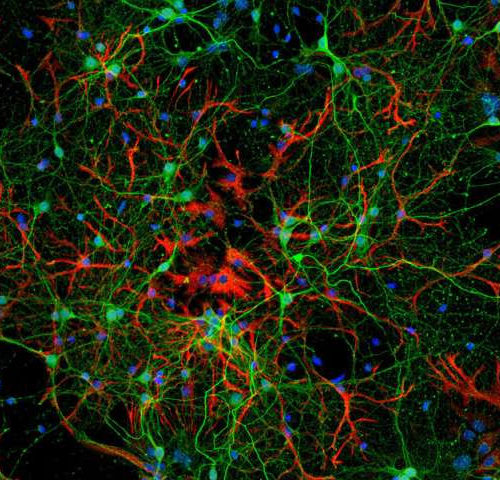CHINESE ACADEMY OF SCIENCES HEADQUARTERS Clinical studies have found that bone mineral density in patients with anxiety or depression is lower than in ordinary people. The brain, commander of the body, receives and processes external signals, and then sends instructions to peripheral bones. But how does anxiety induce a decline in bone mineral density? Researchers...
Tag: <span>Depression</span>
MORE THAN 25% OF AMERICANS FACE DEPRESSION DURING COVID
More than a quarter of American adults are experiencing COVID-related symptoms of depression, researchers report. Though 8.5% of adults were experiencing depression symptoms before the pandemic, the rate climbed to 27.8% of adults by mid-April 2020. “Depression in the general population after prior large-scale traumatic events has been observed to, at most, double,” says Sandro...
Coaxing single stem cells into specialized cells
UNIVERSITY OF ILLINOIS AT CHICAGO SINGLE CELLS ENCAPSULATED IN HYDROGEL WITH VARIED DEPOSITION USING A NEW TECHNIQUE DEVELOPED AT UIC. Researchers at the University of Illinois Chicago have developed a unique method for precisely controlling the deposition of hydrogel, which is made of water-soluble polymers commonly used to support cells in experiments or for therapeutic...
Scientists use blood test to predict who is likely to develop psychotic disorders
by RCSI Scientists have discovered that testing the levels of certain proteins in blood samples can predict whether a person at risk of psychosis is likely to develop a psychotic disorder years later. The study is published in the current edition of JAMA Psychiatry and was led by researchers from RCSI University of Medicine and...
Depressed or anxious teens risk heart attacks in middle age
EUROPEAN SOCIETY OF CARDIOLOGY Sophia Antipolis, France -26 Aug 2020: Depression or anxiety in adolescence is linked with a 20% greater likelihood of having a heart attack mid-life, according to research released today at ESC Congress 2020.1 In a warning to parents, study author Dr. Cecilia Bergh of Örebro University in Sweden, said: “Be vigilant...
Reviewing Associations Between Physical Activity and Loss of Average Telomere Length with Age
This news or article is intended for readers with certain scientific or professional knowledge in the field. Telomeres are repeated DNA sequences at the ends of chromosomes. With each cell division a little telomere length is lost, and this is an important part of the countdown mechanism that limits replication of somatic cells. Somatic cells...
Lack of females in drug dose trials leads to overmedicated women
Gender gap leaves women experiencing adverse drug reactions nearly twice as often as men, study shows UNIVERSITY OF CALIFORNIA – BERKELEY Women are more likely than men to suffer adverse side effects of medications because drug dosages have historically been based on clinical trials conducted on men, suggests new research from the University of California,...
PAD patients with depression had worse recovery, women twice as likely to be depressed
DALLAS, Aug. 12, 2020 — Patients with peripheral artery disease (PAD) and depressive symptoms experience worse recovery especially women, compared to counterparts without depressive symptoms, one year after receiving specialty care for PAD, according to new research published today in the Journal of the American Heart Association, an open access journal of the American Heart...
Aspirin may accelerate progression of advanced cancers in older adults
by Massachusetts General Hospital Results from a recent clinical trial indicate that for older adults with advanced cancer, initiating aspirin may increase their risk of disease progression and early death. The study, which was conducted by a binational team led by researchers at Massachusetts General Hospital (MGH), the Berman Center in Minnesota, and Monash University...
Study uncovers the molecular events by which popular antidepressants work
by Rockefeller University Some highly effective medications also happen to be highly mysterious. Such is the case with the antidepressant drugs known as selective serotonin reuptake inhibitors, or SSRIs: They are the most common treatment for major depression and have been around for more than 40 years, yet scientists still do not know exactly how...





